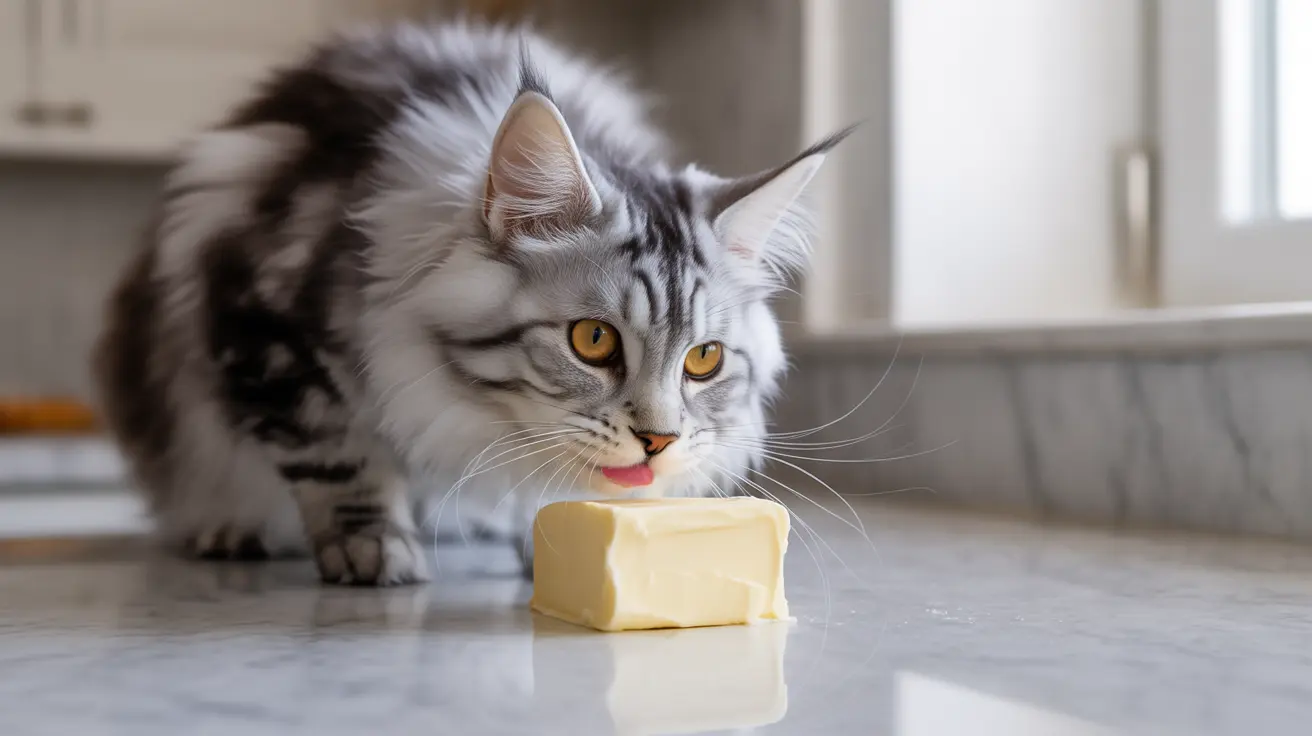Many cat owners have caught their feline friends showing interest in butter, whether it's left out on the counter or used in cooking. While butter isn't toxic to cats, understanding its effects on feline health is crucial for responsible pet care. Let's explore the complete picture of cats and butter consumption, backed by veterinary expertise.
This comprehensive guide will examine the safety concerns, potential risks, and common misconceptions about feeding butter to cats. We'll also address why, despite being non-toxic, butter should generally be kept away from your feline companion.
Understanding Butter's Impact on Cats
Butter primarily consists of concentrated milk fat, containing approximately 100 calories per tablespoon. While cats need some fat in their diet, butter's composition isn't aligned with their nutritional requirements. The high saturated fat content and presence of lactose make it a problematic food choice for most cats.
The Lactose Intolerance Factor
Most adult cats are lactose intolerant, having lost the ability to produce lactase (the enzyme that breaks down lactose) after weaning. When cats consume dairy products like butter, their bodies struggle to digest the lactose, often leading to digestive distress.
Common symptoms of lactose intolerance in cats include:
- Diarrhea
- Vomiting
- Stomach upset
- Bloating
- Gas
Health Risks of Feeding Butter to Cats
Short-Term Effects
Even small amounts of butter can cause immediate digestive issues in cats. The high fat content may trigger:
- Acute gastrointestinal upset
- Vomiting
- Diarrhea
- Loss of appetite
- Lethargy
Long-Term Consequences
Regular butter consumption can lead to more serious health conditions:
- Obesity
- Pancreatitis
- Diabetes
- Cardiovascular issues
- Chronic digestive problems
The Butter and Hairball Myth
A persistent myth suggests that butter helps cats pass hairballs. However, there's no scientific evidence supporting this claim. Instead, veterinarians recommend specialized hairball remedies, regular grooming, and proper nutrition to manage hairballs effectively.
When to Contact Your Veterinarian
If your cat has consumed butter, watch for these warning signs that require immediate veterinary attention:
- Severe or persistent vomiting
- Prolonged diarrhea
- Signs of abdominal pain
- Significant lethargy
- Loss of appetite lasting more than 24 hours
Healthy Alternatives to Butter
Instead of butter, consider these vet-approved options for treats or supplements:
- Commercial cat treats formulated for feline nutrition
- Small pieces of lean, cooked meat
- Veterinary-approved supplements for coat health
- Specially formulated hairball prevention products
Frequently Asked Questions
Can cats safely eat butter, and what happens if they consume a small amount?
While butter isn't toxic, cats shouldn't eat it intentionally. A small lick may cause mild digestive upset, but larger amounts can lead to more serious health issues like vomiting and diarrhea.
Why is butter not recommended in a cat's regular diet despite being non-toxic?
Butter is high in saturated fat and contains lactose, which most cats can't digest properly. It offers no nutritional benefits while posing risks for obesity, pancreatitis, and digestive problems.
How does lactose intolerance in cats affect their ability to digest butter?
Most adult cats lack the enzyme lactase needed to break down lactose in dairy products like butter. This can result in digestive upset, including diarrhea, vomiting, and stomach discomfort.
What are the health risks of feeding flavored or salted butter to cats?
Flavored or salted butter can be especially dangerous for cats, as it may contain harmful ingredients like garlic, onions, or excessive salt. These additives can be toxic to cats and cause serious health complications.
Are there any vet-approved alternatives to butter for adding calories or treats to a cat's diet?
Yes, veterinarians recommend commercial cat treats, specially formulated supplements, or small amounts of lean cooked meat as safer alternatives. Always consult your vet before introducing new foods to your cat's diet.
Conclusion
While butter isn't immediately toxic to cats, it's best to keep it off their menu entirely. The risks of digestive issues, obesity, and other health complications far outweigh any perceived benefits. Instead, focus on providing your cat with a balanced, veterinary-approved diet and appropriate treats designed specifically for feline nutrition.






